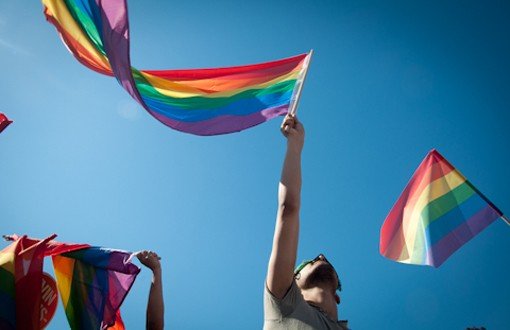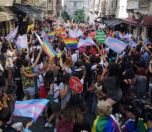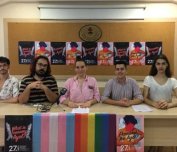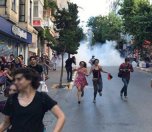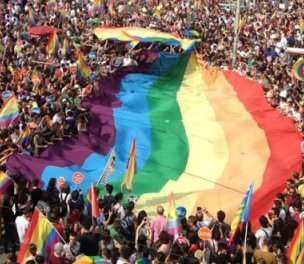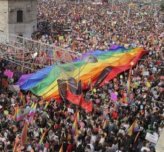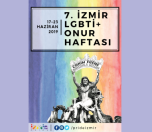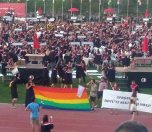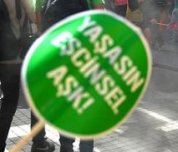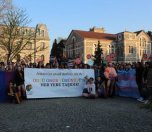Click to read the article in Turkish
Fed up with the oppression and violence against themselves, the LGBTİ+ people rebelled in a bar named Stonewall Inn in New York, the US in 1969.
They locked in the police officers who raided the bar, held demonstrations and clashed with the police on the streets for four days.
The Stonewall Inn riots made a milestone in the history of the struggle of the LGBTİ+ people.
Since then, Pride Week has been held towards the end of June throughout the world.
The "pride" mentioned here is the pride of one's own being, one's not ashamed of his/her own being.
How did it begin in Turkey?
In Turkey, the first attempt to celebrate the Pride Week was made in 1993, under the name of "the Week of Sexual Freedom," only to be banned by the governor.
The first Pride Parade in İstanbul was held in 2003, ten years after the week began to be celebrated.
Four years later, arguably the most significant Pride Week in İstanbul was held at the French Culture Center in Taksim, with the participation of many scholars and writers from Turkey and around the world.
While the İstanbul Pride Week was celebrated freely until 2014, the governor has banned all events since 2015. Yet the LGBTİ+ people, notably from greater cities such as İstanbul, Ankara, İzmir, and Mersin, take to the streets in every year to celebrate the week.
The İstanbul Pride Week is also the largest and oldest of its kind in the Middle East and the Balkans, with the participation of LGBTİ+ people from the countries of the region and the other cities of Turkey, where people cannot hold such events because of the homophobic culture.
This year's theme in İstanbul is the economic crisis
The Committee for the 27th İstanbul LGBTİ+ Pride Week announced this year's theme as "Ekonomi Ne Ayol?" which roughly translates as "Economy? What's that?" "Ayol" is a word for addressing people in Turkish street language and it is usually associated with women or gay men.
A currency crisis has begun in Turkey in August last year, which is followed by rising inflation and unemployment rates. The İstanbul Pride Week Committee though say that they have been experiencing problems regarding employment, housing and security all along because of their gender identity, hence the crisis is nothing new for them.
"Today's crisis is not a new thing for the LGBTİ+! We have been ceaselessly experiencing this crisis every second in the jobs can't get, in the homes we can't live, and in our insecure lives.
"We know from our lives that the economic crisis which makes everyone suffer without differentiating between identities is also political. We are aware that we can't pin our hopes on the economy packages that are announced on TV to maintain our lives.
"At this very point, we ask to talk about what we need to stand on our feet: Economy? What's that? For years, we have been seeing in Turkey and in many different countries that politicians use crises to gain votes through populist discourse.
"These politicians portray the otherized people as a target as those who are responsible for the crisis and lay the burden of the crisis on those people, trying to squeeze us into ghettos and homes.
"The crisis we experience is in our lives and is real to a degree that neither populist politicians nor the intellectual discourse can solve it.
"As we see it in our practices, not any crisis will be solved without the LGBTİ+ people and other oppressed identities are liberated."
The statement also said that they will discuss "alternative ways" to solve the economic crisis.
Pride Week in İzmir and Mersin
In İzmir, the western province which has the third largest population of the country, the Pride Week Parade will be held on June 22 on the Kıbrıs Şehitleri Street.
In the Mediterranean province of Mersin, the Pride Week will be held between July 1 and July 7, under the theme of "chat" on being an LGBTİ+ person.
(EMK/VK)




